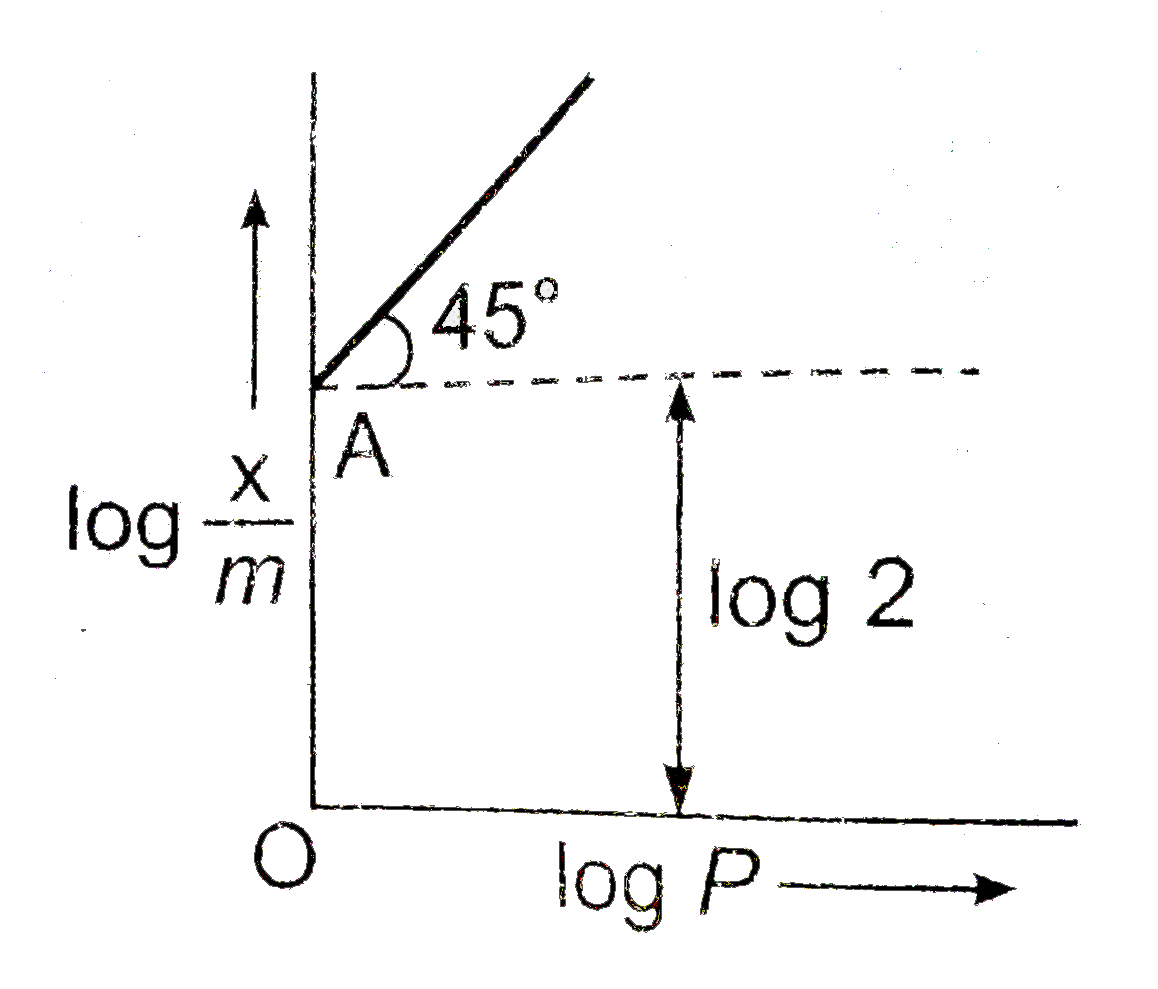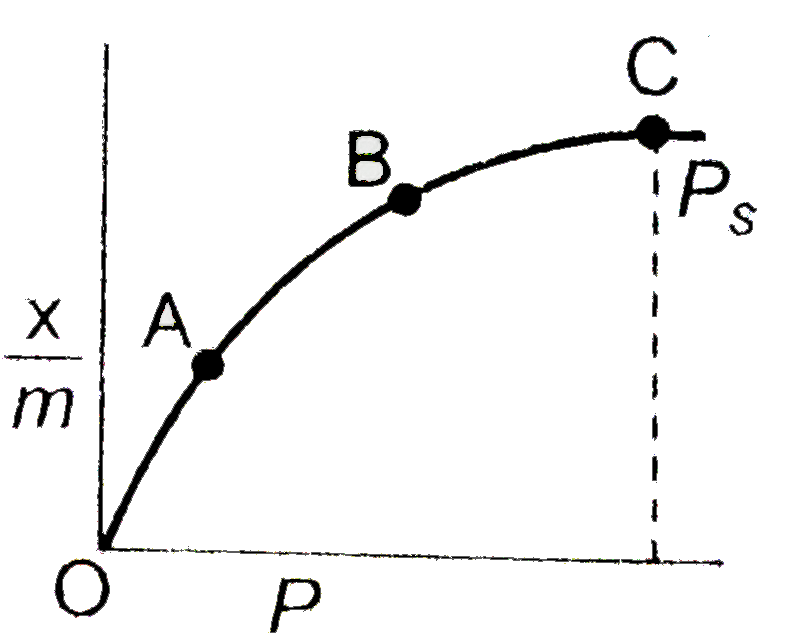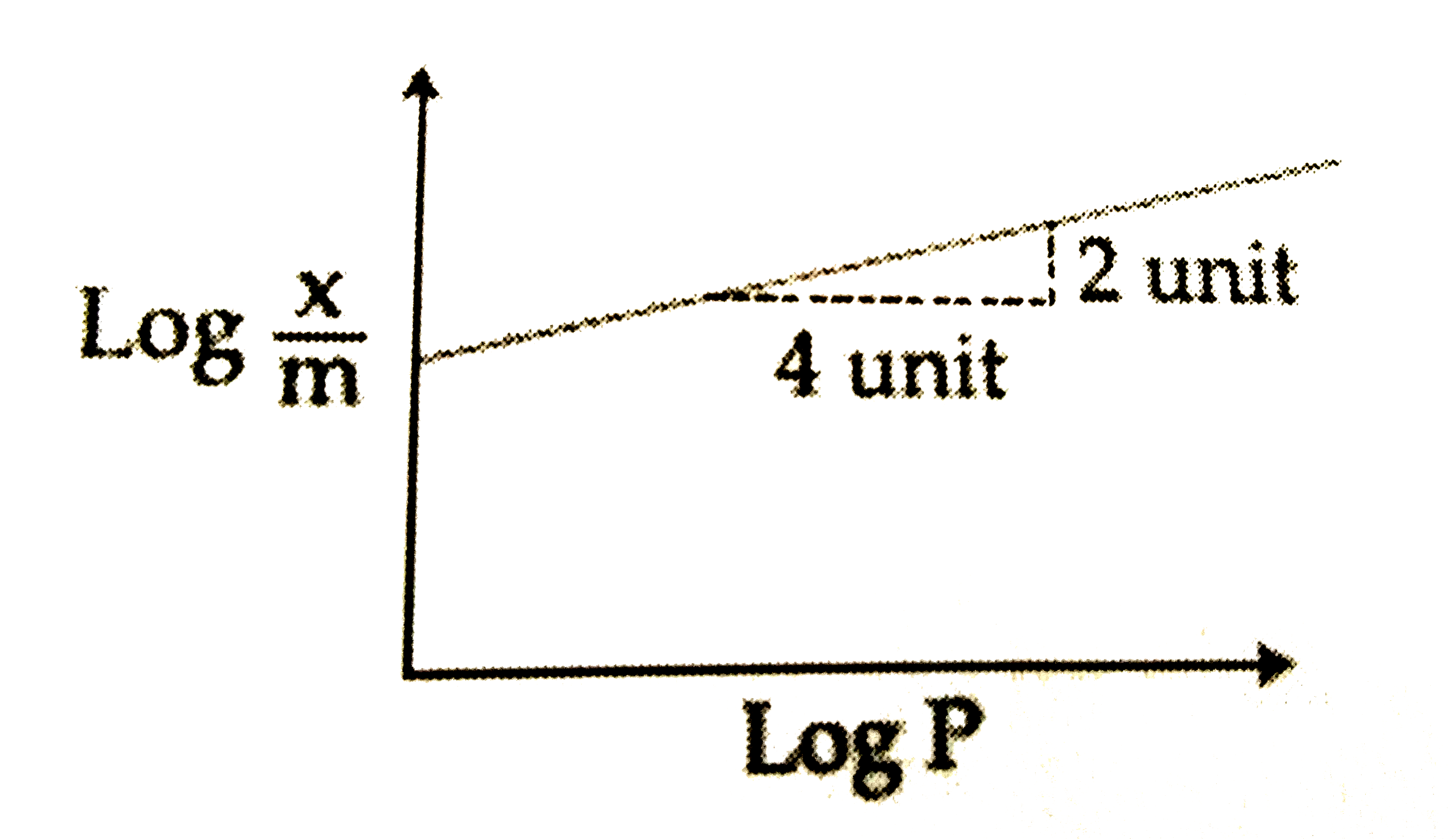A group between x/m and the presure P of the gas at a constant temperature is called adsorption siotherm. Where x is the no. of moles of the adsorbate and m is the mass of the adsorbent. adsoption isotherms of different shaopes have been experimentally observed .. According to frundlich adosroption isthem,
where K and N are constant paraments depending upon the nature of the solid and gas
graph between log and log P is a straight line a t angle with intercept OA as shown .
hence, at a pressure of 2 atm is :

2
4
8
1
The correct Answer is:b
Step by step video & image solution for A group between x/m and the presure P of the gas at a constant temperature is called adsorption siotherm. Where x is the no. of moles of the adsorbate and m is the mass of the adsorbent. adsoption isotherms of different shaopes have been experimentally observed .. According to frundlich adosroption isthem, x//m = KP^(1//n) where K and N are constant paraments depending upon the nature of the solid and gas graph between log (x/m) and log P is a straight line a t angle 45^(@) with intercept OA as shown . hence, (x/m) at a pressure of 2 atm is : by Chemistry experts to help you in doubts & scoring excellent marks in Class 12 exams.
Updated on:21/07/2023Similar Questions
A group between x/m and the presure P of the gas at a constant temperature is called adsorption siotherm. Where x is the no. of moles of the adsorbate and m is the mass of the adsorbent. adsoption isotherms of different shaopes have been experimentally observed .. According to frundlich adosroption isthem,
x/m=KP1/n
where K and N are constant paraments depending upon the nature of the solid and gas
Adsoption isothem of log (xm) and log P was found of the type .

View SolutionA group between x/m and the presure P of the gas at a constant temperature is called adsorption siotherm. Where x is the no. of moles of the adsorbate and m is the mass of the adsorbent. adsoption isotherms of different shaopes have been experimentally observed .. According to frundlich adosroption isthem,
x/m=KP1/n
where K and N are constant paraments depending upon the nature of the solid and gas
Inn the given isotherm select the incorrect statement :

View Solution
Knowledge Check
For Freundlich adsorption isotherm, xm=kp1/n , the value of n is
A1. always greater than oneB2. always smaller than oneC3. always equal to oneD4. greater than one at low temperature and smaller than one at high temperature.
Graph between log x/m and log P is a straight line at angle of 45∘ with intercept 0.4771 on y-axis. Calculate the amount of gas adsorbed in gram per gram of adsorbent when pressure is 3 atm.
View SolutionAdsorption of gas follows Freundlich adsorption isotherm. If x is the mass of the gas adsorbed on mass m of the adsrobent , the correct plot of xm versus p is :
View SolutionAdsorption of a gas follows Freundlich adsorption isotherm. In the given plot,x is the mass of the gas adsorbed on mass m of the adsorbent at pressure P. xm is proportional to:

View SolutionAdsorption of a gas follows Freundlich adsorption isotherm. In the given plot,x is the mass of the gas adsorbed on mass m of the adsorbent at pressure P. xm is proportional to:

View SolutionThe mass of gas adsorbed , x , per unit mass of adsorbate , m , was measured at various pressures , p . A graph between log xm and log p gives a straight line with slope equal to 2 and the intercept equal to 0.4771 .The value of xm at a pressure of 4 atm is : (Given log 3 = 0.4771)
View SolutionAdsorption of gas follows Freundlich adsorption isotherm. x is the mass of the gas adsorbed on mass m of the adsorbent. The plot of logxm versus log p is shown in the given graph.
xm is proportional to:

View SolutionIf a gas absorbs 200J of heat and expands by 500cm3 against a constant pressure of 2×105Nm−2, then the change in internal energy is
View Solution
